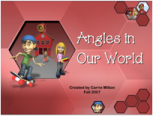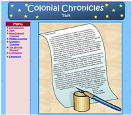Over the past two years, I’ve noticed myself spending more time online reading the opinions, reflections, and ideas that others post. Often, I have a personal response to what somebody writes: “That’s so true!” “What a great idea!” or “I’m not sure I agree with that…” But because I learned literacy as a one-direction skill (you read, think about it, and move on), I hardly ever post a reply to the blogs or discussion boards I read. I haven’t fully embraced the conversational, read-WRITE aspect of the internet yet.
In part, I think some of the reason I’m a silent participant in the internet is I’m worried about people judging my ideas and posts. A few years ago, I joined the PA Keystones Technology Integrators program. One part of this program is a listserv. During the first few years, people didn’t understand how to properly send messages on the listserv, and other members quickly grew annoyed, responded harshly, and nitpicked over the message content.
This made me never want to post anything. In the last year or two, things have calmed down, and the listserv has once again become a productive, healthy learning environment. Still, I’ve only posted 1 message in 3 ½ years! However, having spent more and more time reading blogs, discussion boards, and wikis, I’m learning that the whole purpose of the read-write web is to evaluate (not judge) and respond to the ideas of others.
I have been taking small steps over the past few months, however. From time to time, I’ll reply to my favorite blog, Teachers Love Smart Boards. Although it’s more of a practical teaching blog (it gives ideas and challenges for how to use the Smart Board to enhance instruction) instead of the philosophical or debate-like blogs that are gaining popularity, the occasional post here and there was a rewarding and growing experience—especially since Jim Hollis (the blogger) always responds to you through email.
I’ve also participated in the Smart Board forum.
This has been a great way for me to troubleshoot problems I’m having with my Smart Board, hear what other teachers are doing, and share my ideas. The practical application of these two communities has kept me hooked.
Even though I haven’t yet found my voice in my personal learning network, I have developed a strong (though one-sided) network of blogs, Diigo and Delicious bookmarks, twitter feeds, and discussion boards. I’m noticing that many of the same people participate in the different environments I visit—which makes it feel more personal, and less clinical.
I think it’s time for me to speak up, and start communicating through my personal learning network. I expect my students to blog, post in discussion boards, and respond to others, so it’s probably time for me to do the same. I’m ready (and excited) to take the next step—I just need a little push.
Creating My Own Social Network (Blog Response 1)
Posted by Carrie Mitton on Wednesday, October 29, 2008Labels: insys 497, PLN, read-write web
Will educational change be a trickle or a tsunami?
Posted by Carrie Mitton on Thursday, October 23, 2008In class tonight, we talked about education change in the United States, specifically in regards to School 2.0. I've also been reading several blogs (Will Richardson's, for example) about the topic, so these questions just keep rolling around in my head, and I'm not sure of the answers:
1. What type of change does our educational system really need to prepare our students for the 21st century?
2. When will this change occur? Will it keep trickling in, like it has during the last 8 years, or will there suddenly be a huge reformation?
3. How do we facilitate this change to insure we don't lose great teachers (due to burnout), yet keep our students' needs as the number 1 priority?
4. How do we make sure all stakeholders (students, parents, teachers, administration, school boards, tax payers) come to a productive consensus?
I have some ideas, but their not solidly developed yet. I'm hoping to explore these thoughts in my current grad class, Social Networking for Educators.
Labels: educational change, web 2.0
I finished making my mindtool, which is meant to help students strengthen their online research and reading skills. Check it out at: http://www.wix.com/cmitton/Science-Fair-Research. I began using it with my students and received feedback from other teachers. Based on both experiences, I've decided to make the following modifications for next year:
1) Before beginning the science fair research project, I'll find a few websites of interest for the class to read together. Throughout a series of mini-lessons, I will introduce the students to Flowgram as I read the site out loud, think aloud, highlight key details, and draft summary notes. Then, I'll have the students work with partners to practice the strategy on another assigned website within Flowgram. Finally, they will work individually on an assigned site in Flowgram. I'm making this change because I realized that learning to generate research questions, navigate search engines, evaluate websites, and then read, comprehend, and reflect about online content is a lot to tackle! Introducing the skills in smaller stages will help scaffold student learning.
2) Secondly, as we used the webquest this year, I added a step into the process. I had the students bookmark each site they'd like to use for their research using Internet Explorer. After they located 3-7 sources, then we added them into Flowgram, highlighted, and wrote summary notes. This chunked the learning for the students into manageable pieces, and it also made writing the bibliography easier.
Labels: digital literacy, mindtools, research, science fair





